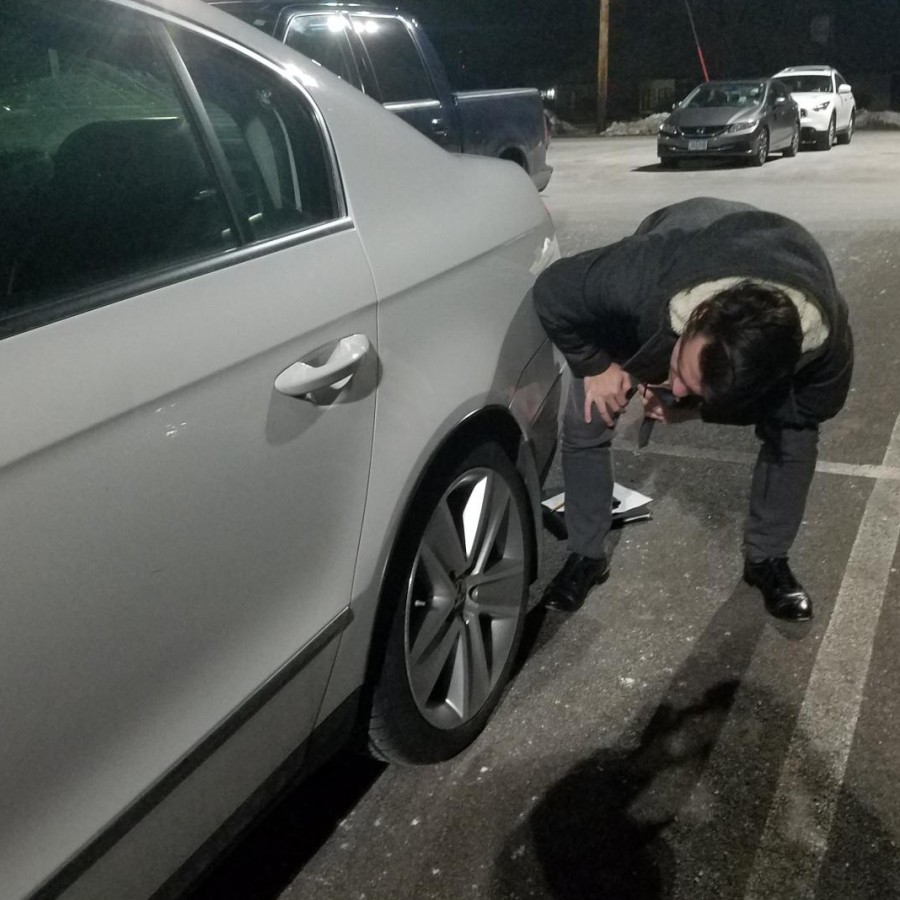Winter’s grip has fully closed on the Quad Cities, causing consternation and indignance daily. But there’s more to winter than school cancellations and shorter days: The cold can wreak havoc on an unprepared driver’s budget. Here are some ways to ensure your car is good as new come springtime.
- Wash your car more frequently than normal
Winter is most often associated with the snow and ice it brings. But with snow comes salt, and salt can cause lasting damage to the exterior of a vehicle. Salt buildup can cause rust and corrosion, reducing appearance, function and future resale value. Worse yet, salt tends to accumulate in hard-to-spot areas, including the hydraulic braking system. A car wash every week or two will help prevent costly damage to some of the more delicate parts of a vehicle: Spending a little extra time and money now helps to prevent a surprise breakdown later. It’s never a good time for a brake failure!
2. Check tire pressure
Charles’s Law states that temperature and pressure are directly proportional. This means, among other things, that car tires will have a lower pressure during the colder months. Underinflated tires are worse in every respect, increasing wear while reducing traction and fuel economy. Since air is free or sold cheaply at nearly all gas stations, it is prudent to check tire pressure during cold snaps.
3. Fully warm the engine
Winter nights often dip well below freezing, icing up windshields and making a car’s cabin feel like something out of the Ice Age. The cold is not limited to the cabin, however. The colder the outside temperature, the longer it takes the engine and exhaust system to fully warm up. As the engine warms, moisture from the air condenses in the tailpipe, which is much cooler. (This is the water you see dripping out of exhaust pipes: A dripping tailpipe means that vehicle was only recently started.) The water is not fully removed until the exhaust system warms up enough to boil off the condensation. Failure to fully warm up the engine causes the water to remain and pool within the system, causing rust. For those with short commutes and/or older, slower to warm models, this is an easily overlooked problem. The solution? Drive around the block a few times, or take a detour to pick up a friend. Once the engine temperature needle starts to rise, the exhaust system will soon follow. A warm engine has other benefits, including increased mileage and reduced wear.
4. Don’t idle for too long
This may seem counterintuitive to the last tip, but it is not. Warming up your car by idling may actually be worse than driving on a cold engine. Idling causes the most wear on an engine, and is an inefficient way of heating up a car’s engine. Some idling before your commute is important-30 seconds to a minute is ideal for oil circulation-but idling for much longer wastes gas, wears on the engine, and harms the environment.
5. Keep the gas tank at least ¼-½ full.
This isn’t a bad idea in the summer either, as a full tank helps peace of mind and a valuable asset if lost, stranded, or otherwise unable to access a gas pump. In the winter, though, it’s more than just an old wives’ tale: Fuel lines can freeze if moisture in a mostly empty tank condenses and freezes, preventing vehicle startup. A full tank also forestalls other problems, including fuel pump failure.
As winter continues to drag on despite Phil’s prediction, increased wear and tear is a frightening possibility for PV drivers. Expensive repairs, damage, and breakdown are real possibilities if motorists are unprepared; being informed and taking action can increase safety and save hundreds of dollars down the line. Following these steps is an important part of ensuring your car stays on the road for years to come.
















